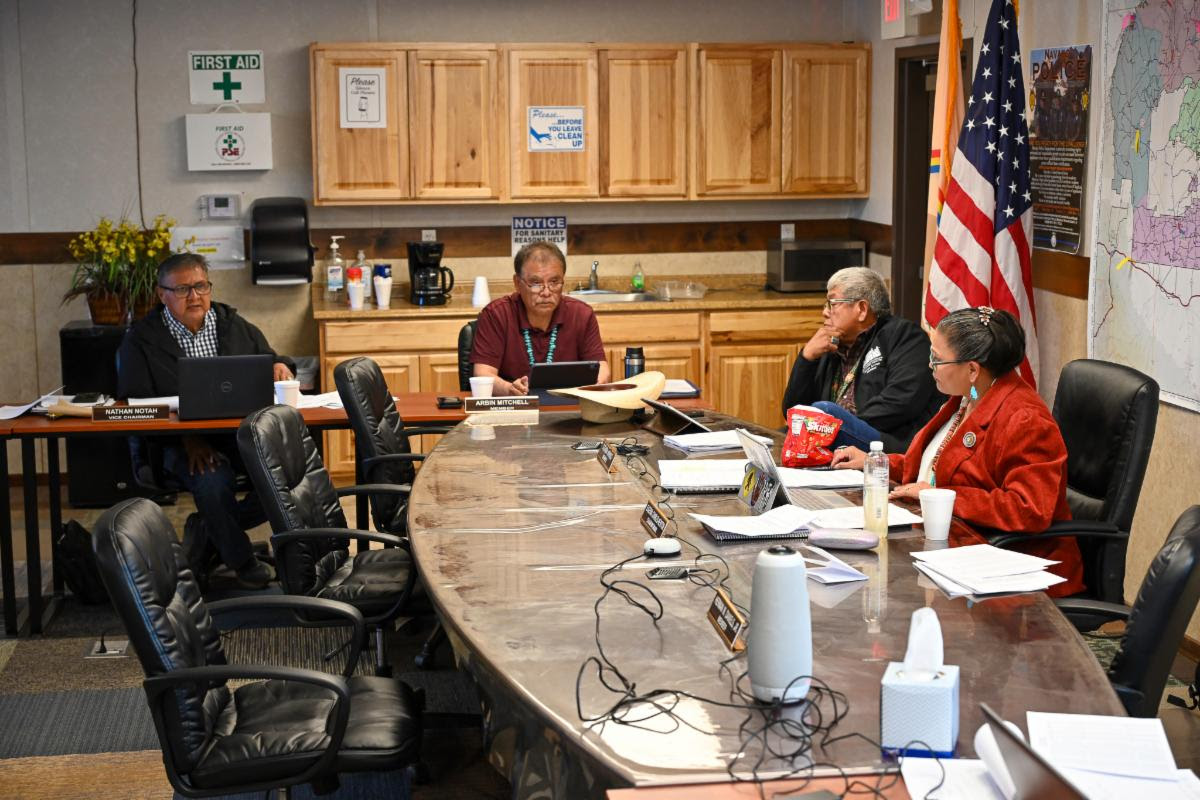
- Details
- By Native News Online Staff
The Navajo Nation Council’s Law and Order Committee on Tuesday, Nov. 11, unanimously advanced three mutual-aid agreements aimed at strengthening law enforcement cooperation between the Navajo Nation Division of Public Safety, the Navajo Police Department, and three neighboring jurisdictions: Navajo County, Coconino County, and the Hopi Tribe.
The agreements are intended to improve coordination, communication, and joint enforcement of criminal and traffic laws across the Navajo Nation and surrounding areas.
Committee Chair Eugenia Charles-Newton of Shiprock said the agreements directly respond to long-standing concerns raised by community members about gaps in public safety.
“Our Diné people have repeatedly called for stronger action to protect their communities,” Charles-Newton said. “Too often, offenders have used jurisdictional gaps to escape accountability. This agreement closes those gaps and gives our Division of Public Safety the tools, partnerships, and legal authority it needs to safeguard every corner of the Nation.”
The agreements formalize cooperative law enforcement operations, including cross-commissioning of peace officers between the Navajo Nation and its partner agencies. Certified officers would be authorized to conduct searches, make arrests, and enforce criminal and traffic laws of both the Navajo Nation and the State of Arizona, as allowed by law. Officials say the measures are designed to prevent any jurisdiction from becoming a safe haven for offenders and to ensure consistent enforcement.
Vice Chair Nathan Notah, who represents Coyote Canyon, Mexican Springs, Naschitti, Tohatchi and Bahastl’a’a’, called the action a necessary advancement for the Nation’s justice system.
“This is long overdue,” Notah said. “For too long, our law enforcement officers have faced barriers that limited their ability to pursue and detain violent offenders. These agreements represent a unified approach to protecting our people and ensuring no one uses the Navajo Nation as a refuge from justice.”
The agreements also outline extradition procedures between the Navajo Nation and the partner jurisdictions. Extradition requests must include written documentation and warrants issued by the requesting authority. After arrest, individuals will appear before a judge to confirm their identity and will retain rights to counsel and bail.
Additional provisions address cross-commissioning procedures, Navajo Peace Officer Standards and Training (Navajo POST) requirements, and coordinated responses during emergencies and disasters. Each agency will maintain supervisory control over its own officers during joint operations.
“This is a historic step toward stronger partnerships and a safer future,” Charles-Newton said. “By standing together with our neighboring counties and the Hopi Tribe, we reaffirm the sovereignty of the Navajo Nation and our shared commitment to justice and community safety.”
The committee voted 3–0 to approve Legislation Nos. 0238-25, 0243-25, and 0244-25, which include amendments clarifying enforcement and procedural language. The measures now move to the Naabik’íyáti’ Committee for final consideration.
More Stories Like This
50 Years of Self-Determination: How a Landmark Act Empowered Tribal Sovereignty and Transformed Federal-Tribal RelationsThe Shinnecock Nation Fights State of New York Over Signs and Sovereignty
Navajo Nation Council Members Attend 2025 Diné Action Plan Winter Gathering
Ute Tribe Files Federal Lawsuit Challenging Colorado Parks legislation
NCAI Resolution Condemns “Alligator Alcatraz”
Help us defend tribal sovereignty.
At Native News Online, our mission is rooted in telling the stories that strengthen sovereignty and uplift Indigenous voices — not just at year’s end, but every single day.
Because of your generosity last year, we were able to keep our reporters on the ground in tribal communities, at national gatherings and in the halls of Congress — covering the issues that matter most to Indian Country: sovereignty, culture, education, health and economic opportunity.
That support sustained us through a tough year in 2025. Now, as we look to the year ahead, we need your help right now to ensure warrior journalism remains strong — reporting that defends tribal sovereignty, amplifies Native truth, and holds power accountable.
 The stakes couldn't be higher. Your support keeps Native voices heard, Native stories told and Native sovereignty defended.
The stakes couldn't be higher. Your support keeps Native voices heard, Native stories told and Native sovereignty defended.
Stand with Warrior Journalism today.
Levi Rickert (Potawatomi), Editor & Publisher


